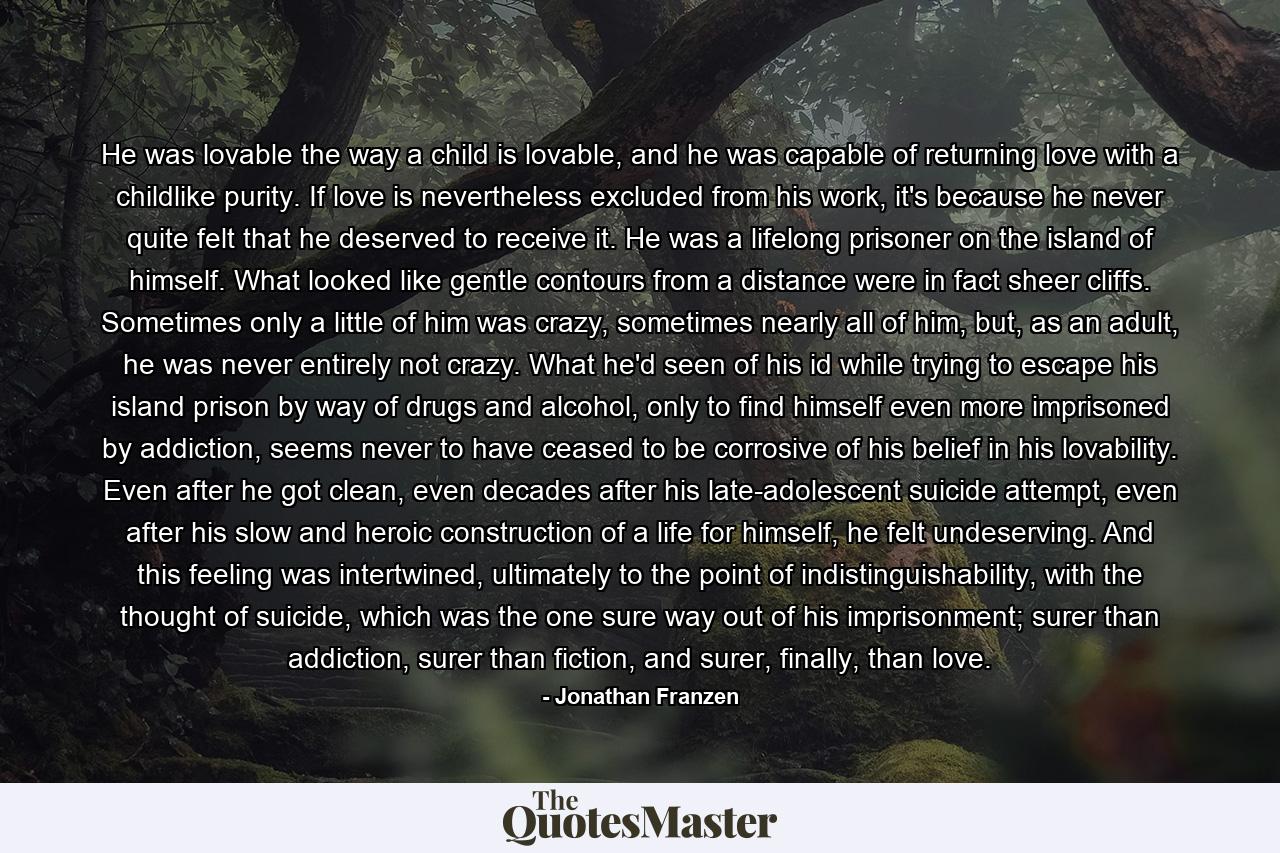He was lovable the way a child is lovable, and he was capable of returning love with a childlike purity. If love is nevertheless excluded from his work, it’s because he never quite felt that he deserved to receive it. He was a lifelong prisoner on the island of himself. What looked like gentle contours from a distance were in fact sheer cliffs. Sometimes only a little of him was crazy, sometimes nearly all of him, but, as an adult, he was never entirely not crazy. What he’d seen of his id while trying to escape his island prison by way of drugs and alcohol, only to find himself even more imprisoned by addiction, seems never to have ceased to be corrosive of his belief in his lovability. Even after he got clean, even decades after his late-adolescent suicide attempt, even after his slow and heroic construction of a life for himself, he felt undeserving. And this feeling was intertwined, ultimately to the point of indistinguishability, with the thought of suicide, which was the one sure way out of his imprisonment; surer than addiction, surer than fiction, and surer, finally, than love.
